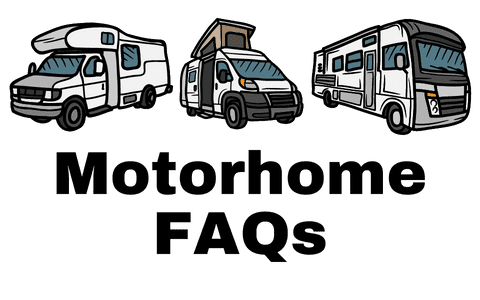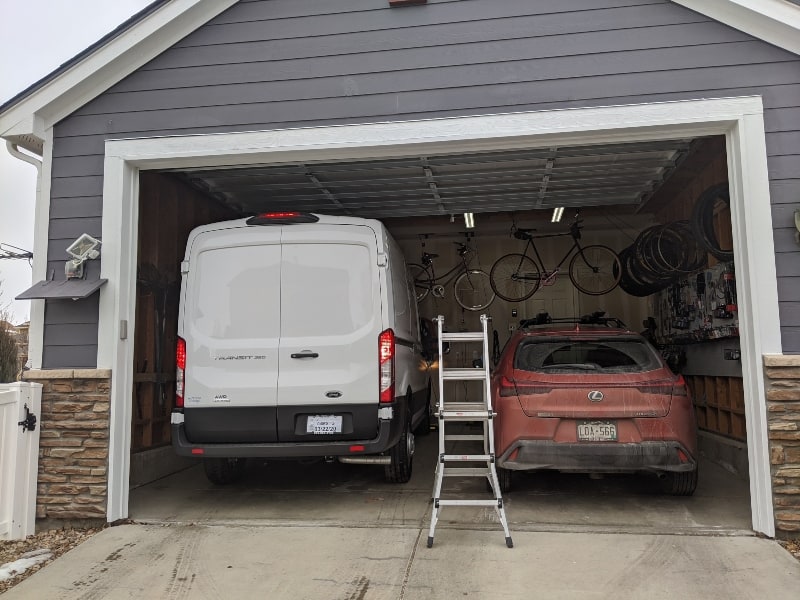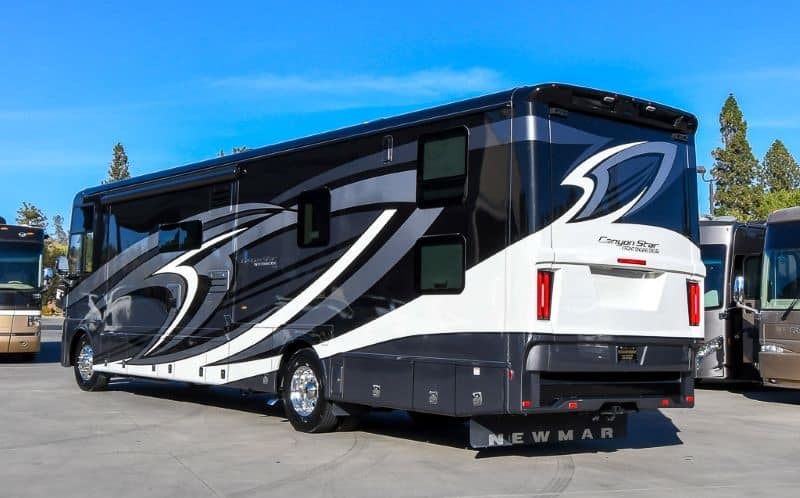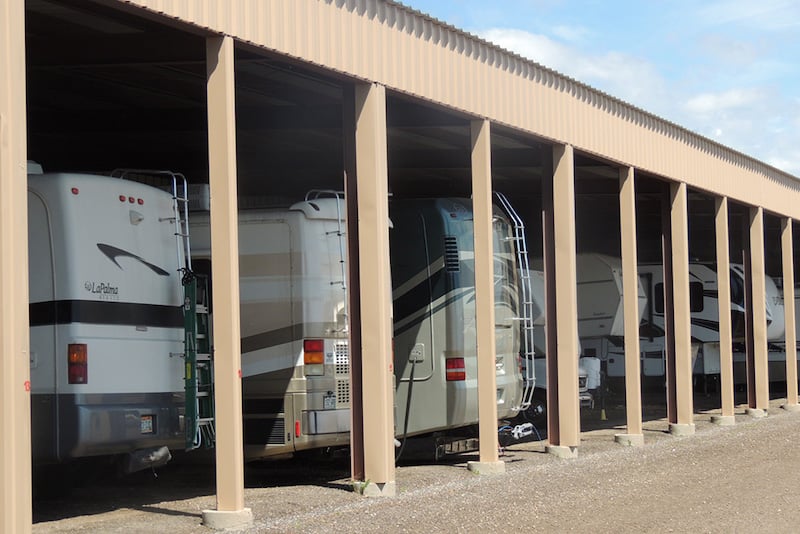If you’re in the market or already have one, you might wonder if your Class B RV will fit in a garage. The answer to this question depends on several factors.
A garage is a great way to protect your RV from the elements and keep them clean. But most RVs are simply too large to fit, meaning you’ll have to find somewhere else to park them.
But what about the smallest class of RVs, Class B RVs? Let’s consider whether a Class B RV can fit in a garage and other options for storing your Class B RV.
Can Your Class B RV Fit in the Garage?
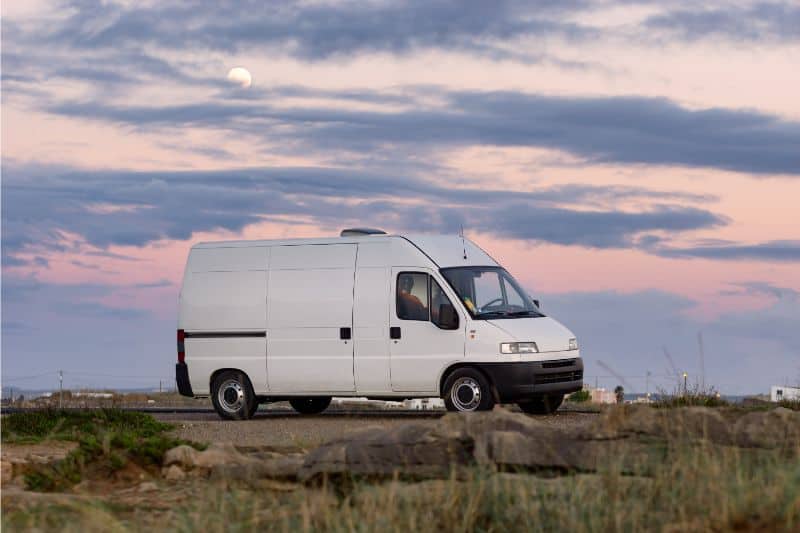
Because they’re the smallest class of motorhome, Class B RVs can possibly fit into a garage better than other classes of RVs. But there’s no guarantee that your camper van will fit into your garage.
If your Class B has a standard-height roof, chances are good it’ll fit into a standard garage. But if you have a high-roof model, you might find that your RV can’t fit through your garage door.
Generally speaking, if your Class B is 8 feet tall or taller, it’s unlikely to fit in a residential garage.
What’s the Average Height and Width of a Class B RV?
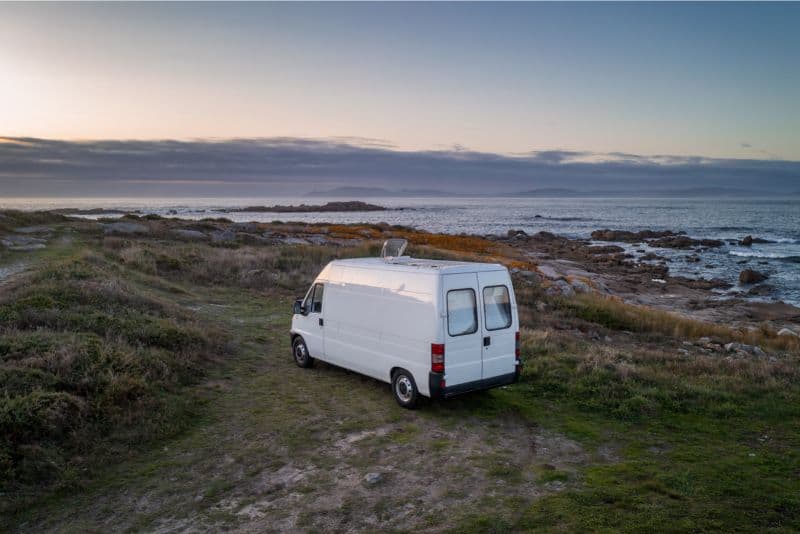
The height and width of a Class B RV vary from model to model. A typical Class B RV will measure around 7 feet tall on standard roof models for the height. High-roof versions are usually around 10 feet tall.
Today’s European-style van chassis for Class B RVs hover around 7 feet wide.
What’s the Average Garage Size?
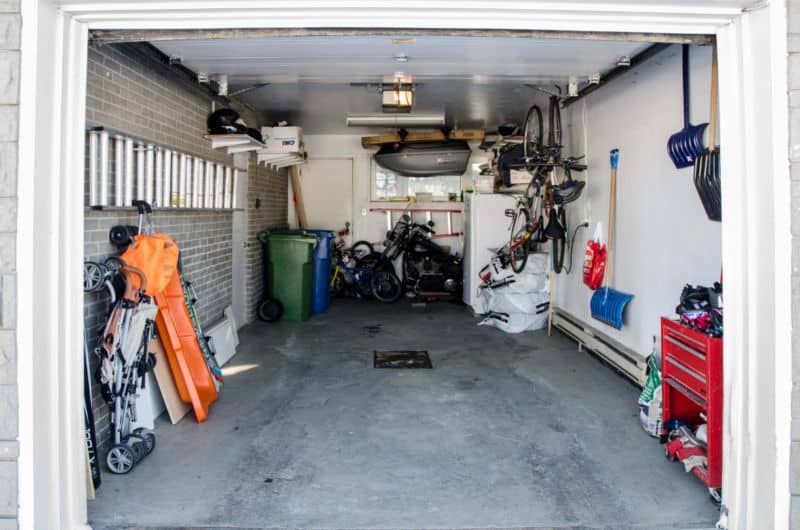
Garages are often sized based on the number of cars that can fit inside, ranging from 1to 4-car garages. For residential homes, 1 and 2-car garages are the most common. The typical interior dimensions of these sizes are:
- 1-car garage: 12 feet wide, 22 feet deep, with an 8-foot wide door
- 2-car garage: 18 feet to 20 feet wide, 20 feet to 24 feet deep, with a 16-foot wide door
- 3-car garage: 26 feet to 28 feet wide, 20 feet to 24 feet deep, with an 8-foot wide and a 16-foot wide door
- 4-car garage: 34 feet to 36 feet wide, 20 feet to 24 feet deep, with two 16-foot wide doors
For all sizes of garages, the interior will average 8 feet high with a 7-foot tall door.
What Size Garage Would Fit a Class B RV?
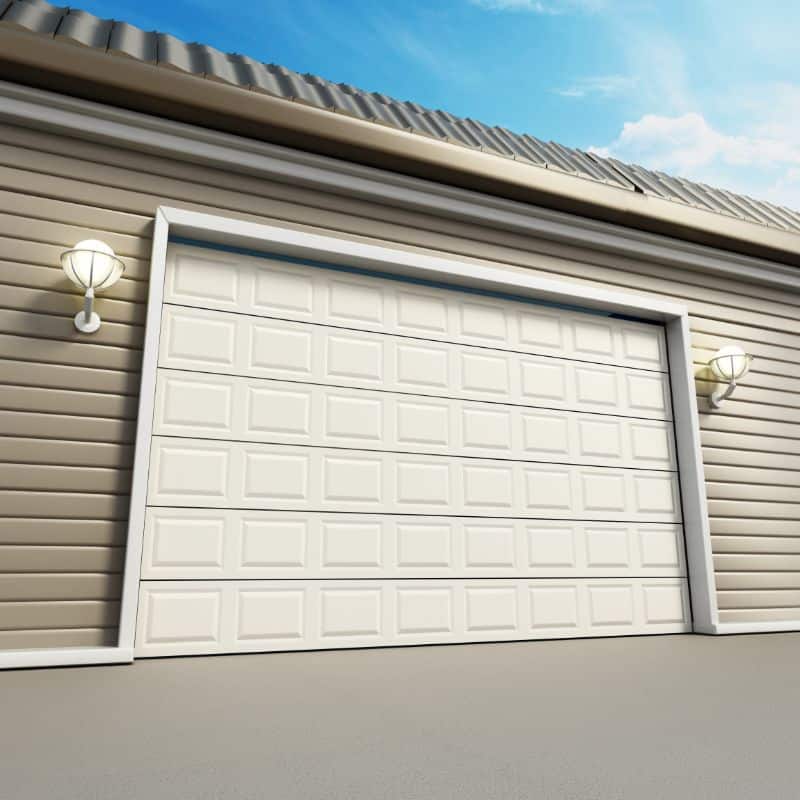
The deciding factor for if a Class B RV will fit in a garage is the height. If the garage door is tall enough, even a 1-car garage can fit a Class B RV. However, a garage must be extra tall, at least 9 feet, to fit most Class B RVs.
Due to this, in most cases, you’ll need a larger-than-average garage to fit most camper vans. A garage built or modified to be around 10 feet tall with a door at least 8 feet tall can easily fit a Class B RV.
Can You Modify a Garage to Fit a Class B RV?
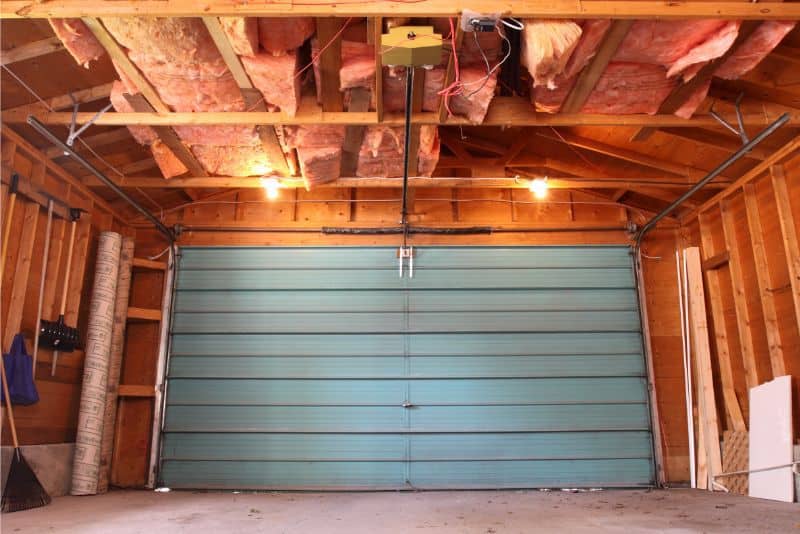
It’s definitely possible to modify your garage to fit your Class B RV.
One option is to enlarge the garage door opening to make it taller or wider. If you just need a bit more height, this option will let you make your garage door taller by 4 to 6 inches.
If enlarging the opening doesn’t suffice, it’s also possible to raise the roof of your garage, although this can be a big (and expensive!) undertaking.
Rebuilding your garage roof is definitely not something you can DIY, so you’ll need to find a professional. You’ll be looking at a $15,000 or more price tag to raise the roof of your garage.
Does Adding an RV Garage to Your Property Add Value?

If you decide to modify your garage to fit an RV, it definitely will add value to your property. Generally speaking, your RV garage will increase the value of your property by about the same amount as you spent to build it.
Making the garage door opening larger won’t add much value. Yet a fully expanded garage with a raised roof could add thousands of dollars of value to your property.
Is There Any RV That Will Fit in a Garage?
Most RVs simply won’t fit into a garage, but exceptions exist.
Pop-ups, A-frame campers, and teardrop trailers should fit into a garage easily. Lower roof compact travel trailers are also RVs that may fit inside your garage.
If you have a Class B RV based on a standard-height van, there’s a good chance you’ll be able to fit it into a standard garage.
Some camper van conversions are based on smaller “city” versions of cargo vans, like the Ford Transit Connect. These almost always fit in a standard garage. Some use minivans as camper van chassis as well.
Let’s look at 5 great camper vans that will fit in your garage.
1. Peace Vans Weekender
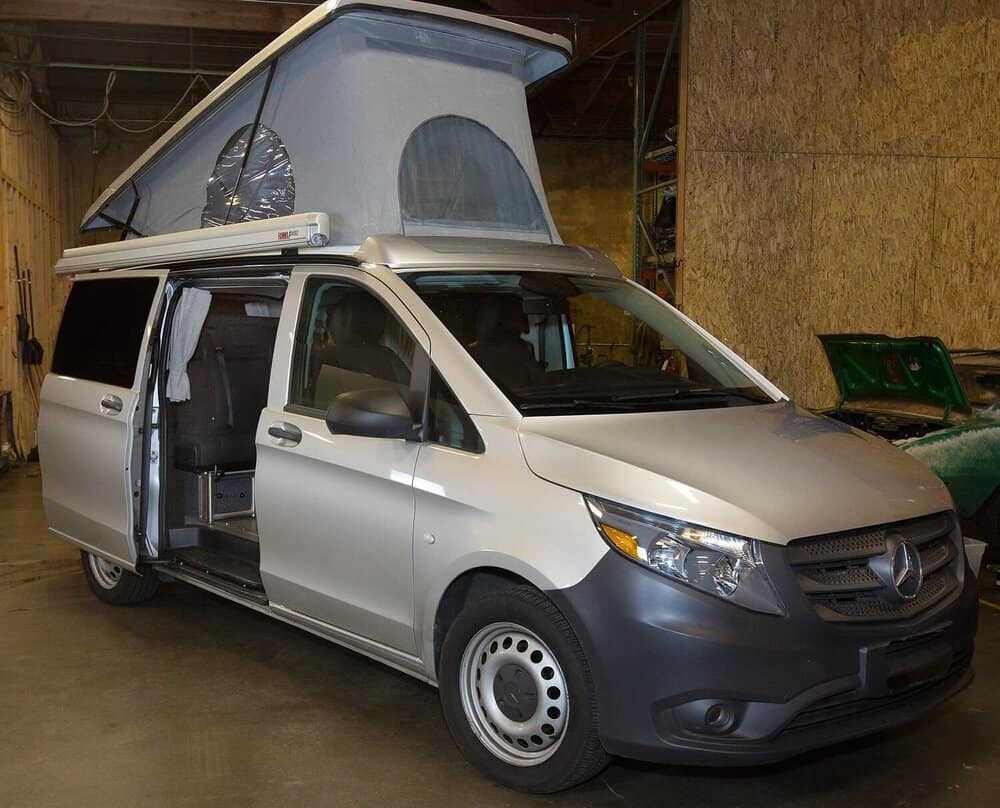
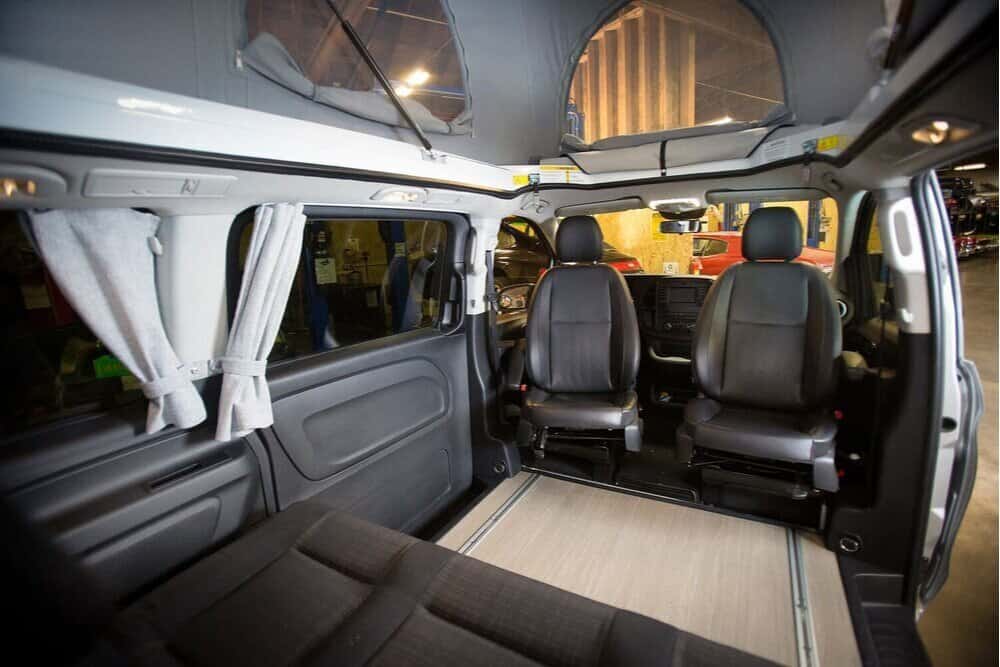
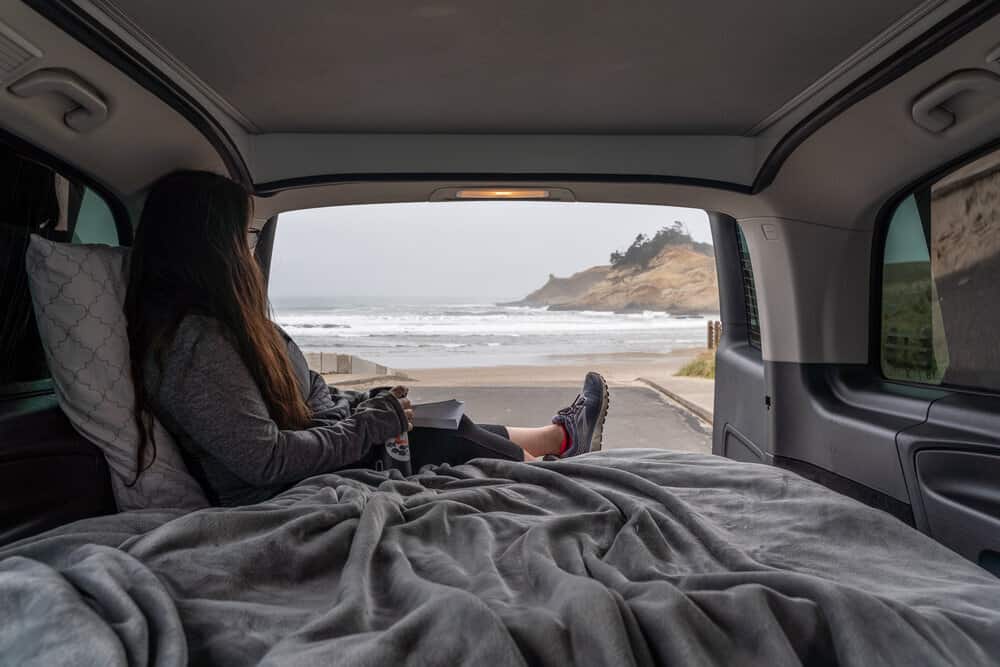
Our Pros and Cons
✅ The pop-top uses the full roof for maximum space!
⛔ The van itself can be financed, but the RV conversion can’t.
- Engine: Mercedes-Benz 2.0L I4 Gas
- Length: 16.9 ft.
- Tow Capacity: 5,000 lbs.
- Chassis: Mercedes-Benz Metris Passenger
- GVWR: 6,393 lbs.
- Sleep: 2-4
The Peace Vans Weekender is a Class B RV designed to double as your daily driver. This RV is based on a Mercedes-Benz Metris van and features plenty of seating.
It has space for four to sleep comfortably. Retract the pop-top when it’s time to store the Weekender in the garage, then extend it back out when it’s time to camp.
2. Cascade Camper Vans
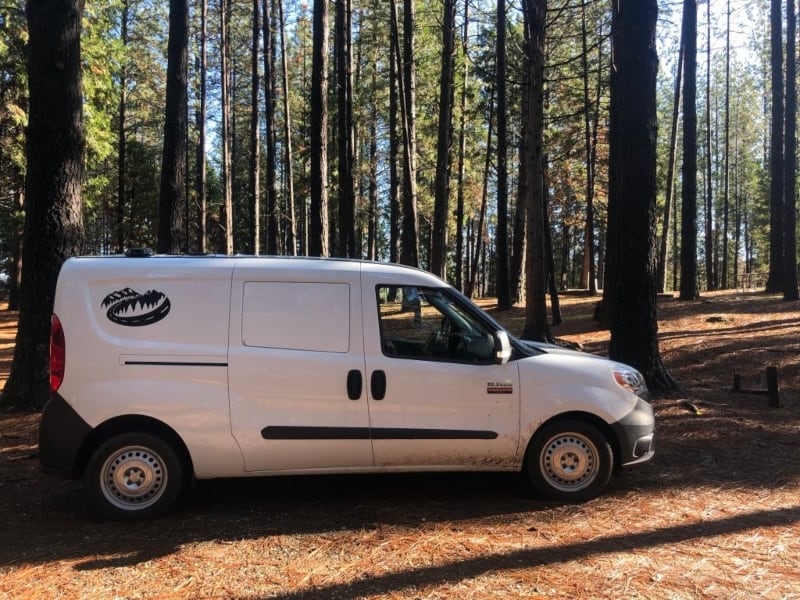
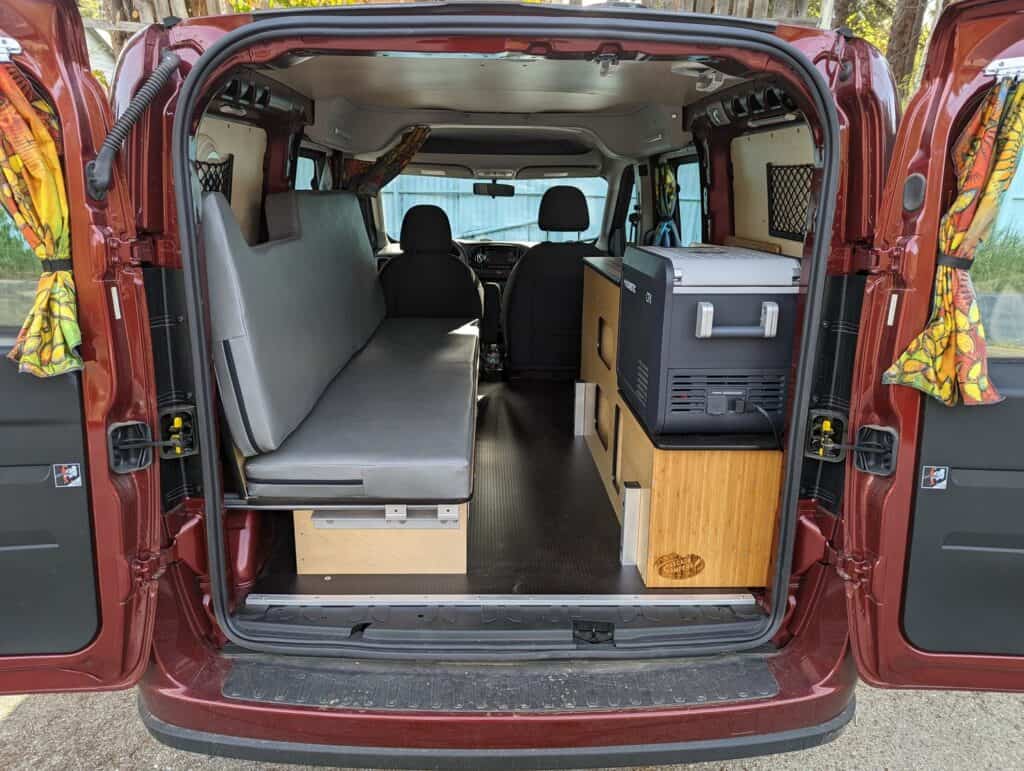
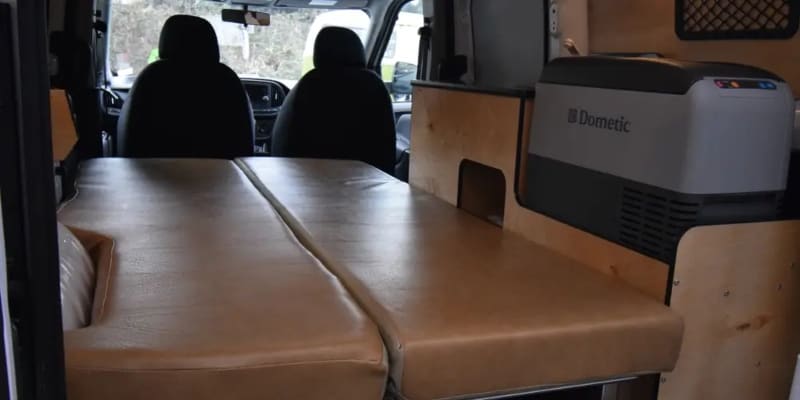
Our Pros and Cons
✅ Stealth camper van fans will like urban camping in the Cascade Camper!
⛔ The conversion van company doesn’t buy the van for you.
- Engine: Chrysler Tigershark 2.4L I4 Gas
- Length: 15.6 ft.
- Tow Capacity: 2,000 lbs.
- Chassis: Ram ProMaster City
- GVWR: 5,395 lbs.
- Sleep: 1-2
Cascade Camper Vans are economical, compact Class B conversion vans based on a Promaster City chassis. These Class B RVs easily fit in your garage and function as your daily driver while also being perfect for your next camping trip.
In fact, Cascade Camper Vans are designed to work as your only car, not just your RV.
3. ModVans CV1
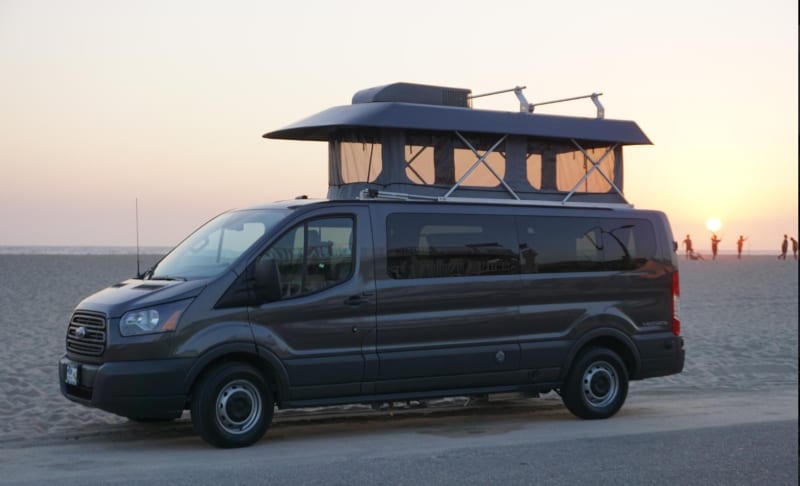
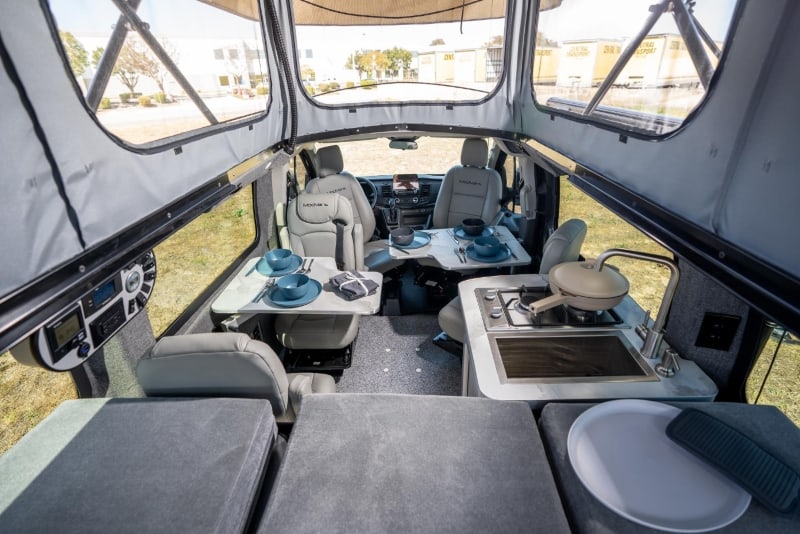
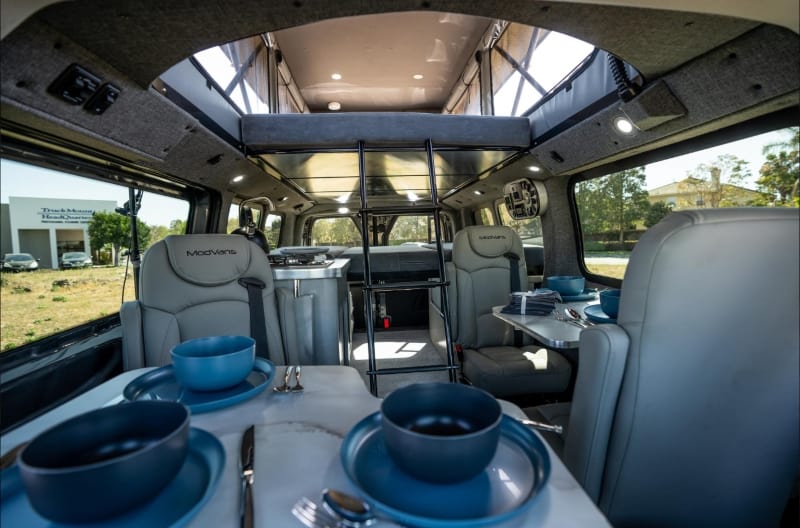
Our Pros and Cons
✅ The pop-top gives a lot of head space!
⛔ The conversion features use 1,100 pounds, so watch your cargo weight.
- Engine: Ford EcoBoos 3.5L V6 Gas
- Length: 18.4 ft.
- Tow Capacity: 5,000 lbs.
- Chassis: Ford Transit 150 low roof
- GVWR: 8,670 lbs.
- Sleep: 2-4
The ModVans CV1 is one of the most spacious Class B RVs that can fit into a garage. It’s based on a low-roof Ford Transit with a pop-top for extra space.
The ModVans CV1 features 2 large beds, seating for up to 7, and modular components, which make it a full-feature camper van, work van, and a daily driver rolled into one.
4. DLM Distribution Mini-T
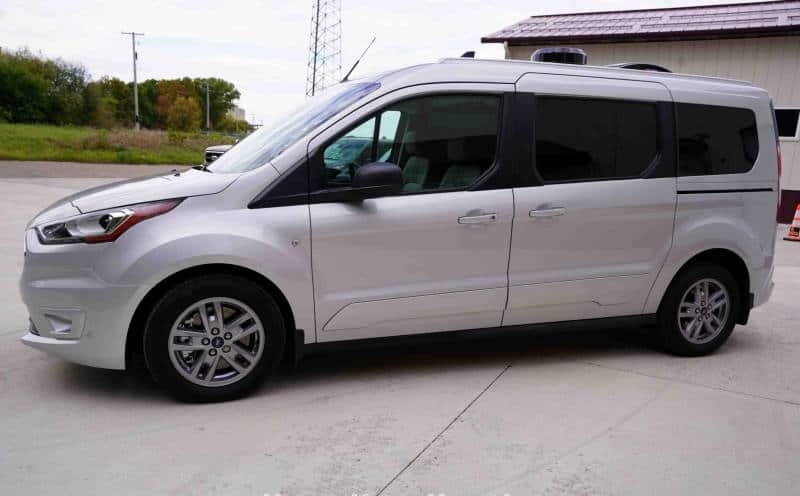
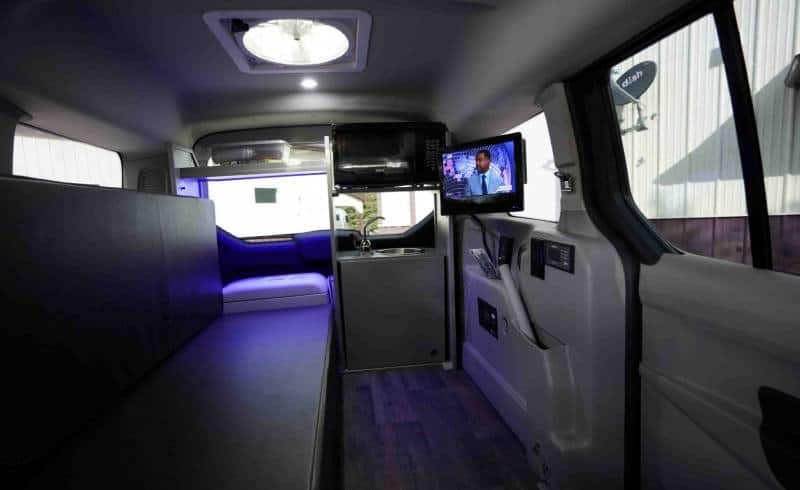
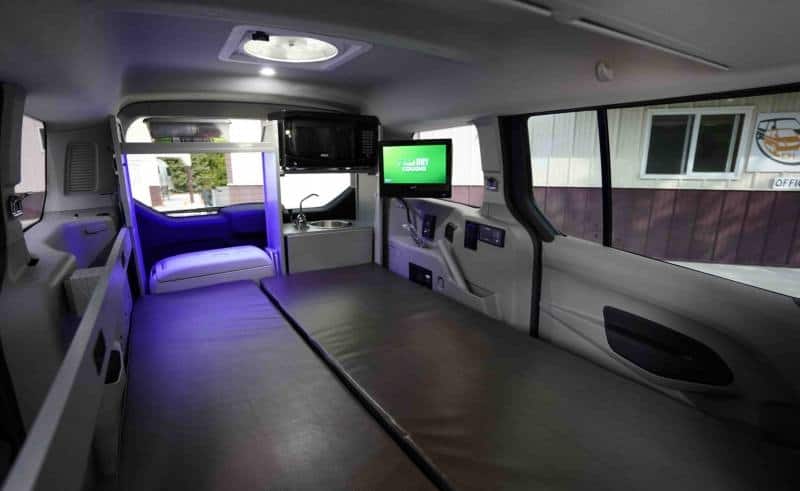
Our Pros and Cons
✅ This RV’s storage and features can be fully used in day or night mode!
⛔ The windows are tinted, but curtains would be handy.
- Engine: Ford GDI 2.0L I4 Gas
- Length: 15.10 ft.
- Tow Capacity: 2,000 lbs.
- Chassis: Ford Transit Connect
- GVWR: 5,130 lbs.
- Sleep: 1-2
The DLM Distribution Mini-T is off-grid capable, self-sufficient, and, as the makers put it, “garageable.” This tiny camper van is based on a Ford Transit Connect, and despite the small size, it packs in a solar power system, kitchenette, and sleeping space for 2. All that makes for a highly versatile Class B RV that easily fits in your garage.
5. Contravans Low Roof Custom
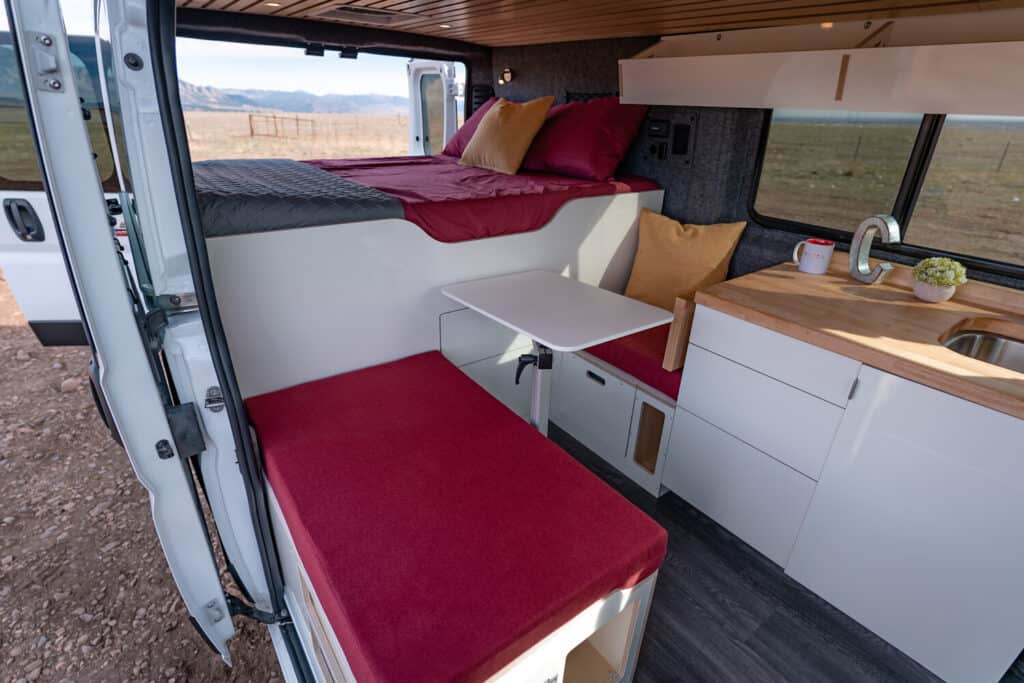
Our Pros and Cons
✅ The company makes use of the space with plenty of storage!
⛔ The only HVAC is the Maxxair vent fan.
- Engine: Chrysler Pentastar 3.6L V6 Gas
- Length: 17.10 ft.
- Tow Capacity:
- Chassis: Ram ProMaster Low Roof
- GVWR: 8,550 lbs.
- Sleep: 1-2
Contravans is a well-known maker of custom van conversions of all different kinds. This Low Roof Promaster conversion is a low-profile Class B RV that can fit into a garage. It features a full-size bed with a memory foam mattress, a lithium battery system with a 3,000w inverter, and a beautiful slatted ceiling.
Can You Park Your Class B RV in the Driveway?

A Class B RV will fit easily into most driveways, making your parking pad a great option for parking. But in some cases, you may not be able to park your RV in your driveway because of local restrictions.
If you have an HOA, be sure to check if they have any regulations about what types of vehicles you can have in your driveway.
If you rent, consider checking with your landlord about parking your Class B in the driveway to avoid trouble. In rare cases, there may also be local laws or regulations related to what you can park in your driveway as well.
Is It Okay to Park an RV on the Street?
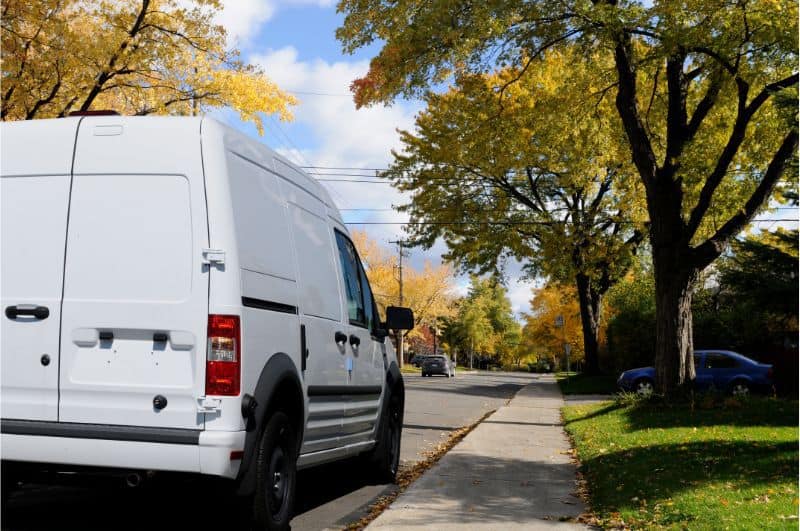
Whether you can park an RV on the street depends on local laws and exactly what street you’re on.
In many places, there are laws and HOA regulations against parking an RV on residential streets or limiting how long they can be there. Non-residential streets are also likely to be limited to local laws or require you to pay for the period you’re parked there.
Of course, stealth camping in a Class B RV is always an option if you want to park your RV on the street. Just be careful to keep your profile low and avoid spending too long in one spot.
Many cheap Class B RVs have a stealth camper van look. It’s amazing how well these camper vans blend into urban environments. Some even use them as their daily driving vehicles. Read more about cheap Class B RVs in our feature article.
Where Else Can You Store Your Camper Van? 3 Ideas

When it comes to storing your camper van, you have more options than just your garage. Here are 3 ideas for where to store a Class B RV.
1. RV Carport
Building a carport for your RV is a great way to have a safe place to park while being protected from the elements. Installing an RV carport is usually simpler and cheaper than expanding your garage and can even be done DIY.
2. Driveway with a Waterproof Cover
Parking your RV in the driveway with a waterproof cover is almost as good as parking it in a garage. With a quality cover, your RV will remain safe and protected from rain and anything else that could affect it.
3. Off-Site Storage
An off-site storage facility may be one of the best places to store an RV. Here, your RV is protected from sun, wind, and rain, keeping it safe while freeing up space on your property (and keeping you from running afoul of your HOA or local laws).
Remember that RV storage isn’t free, and you’ll typically pay between $100 and $250 monthly.
Why You Should Store Your RV Covered
Putting a cover on your RV has plenty of benefits.
- A cover protects the paint and interior fabrics from damage due to UV radiation from the sun.
- Protection also prevents dust, dirt, and other gunk from accumulating on the RV.
- An RV cover helps prevent water intrusion and accumulation, which can cause massive damage to your RV.
So, Will a Class B RV Fit in a Garage?
As we can see, in most cases, a Class B RV won’t fit in a standard garage. Most Class B RVs are built on high-roof vans that are over 8 feet tall, while a standard garage door is only 7 feet tall. Only low-roof models will typically fit in a garage.
But, if you have (or plan to build) a larger than a standard garage, it can be possible to store your Class B inside of it. Alternatively, you can park your RV in your driveway or on the street, build a carport, or put your Class B into off-site storage.
About the author:
Jennifer Jennings is a full-time RVer and part-time van lifer. She is one half of DashboardDrifters.com and the founder of RVSpotDrop, a web service for full-time RVers.

